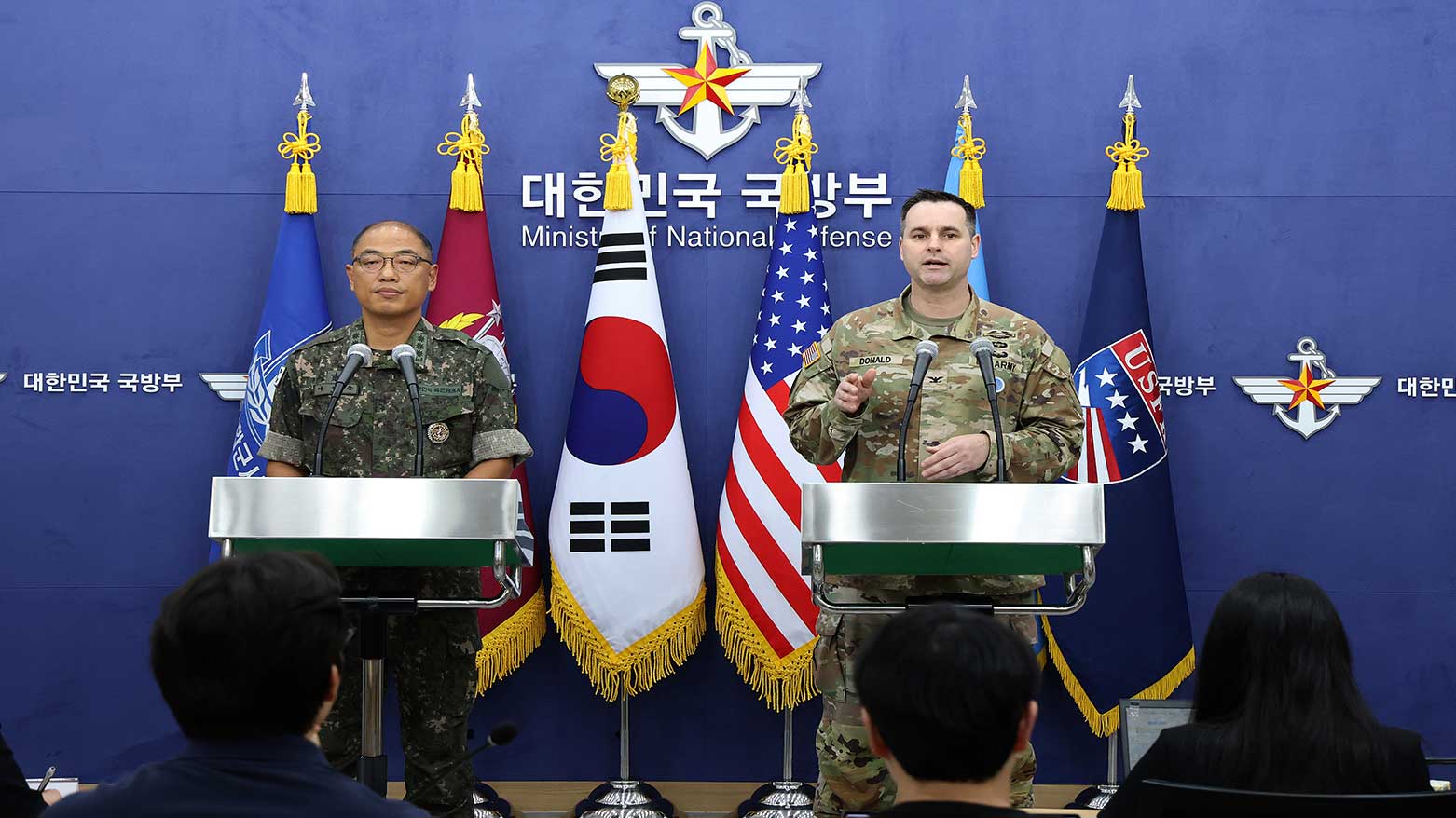South Korea, U.S. to Launch Ulchi Freedom Shield Drill Amid Stalled Talks with Pyongyang
It includes command post simulations and combined field exercises, with a focus on deterring North Korean nuclear threats and responding to missile attacks, according to AP.

ERBIL (Kurdistan24) — South Korea and the United States will begin their annual large-scale military drill, Ulchi Freedom Shield, later this month to strengthen preparedness against North Korea, according to the Associated Press (AP).
The joint exercise, scheduled for August 18–28, comes amid stalled diplomatic efforts with Pyongyang and rising anxieties in Seoul over the future of its security alliance with Washington, particularly as the Trump administration eyes potential shifts in U.S. military commitments abroad.
Ulchi Freedom Shield, the second major drill held each year, will involve approximately 18,000 South Korean troops and an undisclosed number of U.S. forces. It includes command post simulations and combined field exercises, with a focus on deterring North Korean nuclear threats and responding to missile attacks. The training will also integrate lessons from recent conflicts, such as the Russia-Ukraine war and Iran-Israel tensions, and will address new threats, including drones, GPS jamming, and cyberattacks.
Col. Lee Sung Joon of South Korea’s Joint Chiefs of Staff and Col. Ryan Donald, U.S. Forces Korea’s public affairs director, jointly confirmed the scale of the exercise remains consistent with previous years. However, around half of the 40 originally planned field training programs will be delayed until September due to extreme heat.
North Korea has long denounced such exercises as rehearsals for invasion and often retaliates with provocative weapons tests. AP reports that Pyongyang, doubling down on its nuclear ambitions, has rejected calls to resume disarmament talks and is now prioritizing military and diplomatic ties with Russia, including sending troops and equipment to support Moscow’s war in Ukraine.
The timing of the drills coincides with broader geopolitical shifts. South Korean officials are concerned that a second Trump term could bring demands for increased defense cost-sharing or even a reduction in the 28,500 American troops stationed on the peninsula.
Responding to speculation, Col. Donald emphasized the alliance's credibility and adaptability in facing both North Korean and regional challenges. Still, he did not confirm whether the drills include training for possible U.S. force realignments.
Meanwhile, North Korean leader Kim Jong Un’s sister, Kim Yo Jong, dismissed Seoul’s recent overtures, accusing President Lee Jae Myung’s administration of being no different from its conservative predecessors due to its unwavering alliance with the U.S. She also criticized any Trump-era efforts to restart talks, reinforcing Pyongyang's disinterest in returning to diplomacy.
A summit between Trump and President Lee is reportedly being planned for later this month, where the future of the U.S.-South Korea alliance may be discussed. South Korea’s foreign minister, Cho Hyun, has downplayed fears of major changes, telling The Washington Post that “there is no concern” about the continued presence and role of U.S. troops in the country.
The upcoming drills, as AP notes, may further strain inter-Korean relations while also testing the resilience and direction of one of Washington’s key alliances in Asia.
